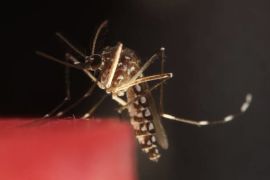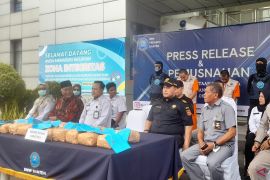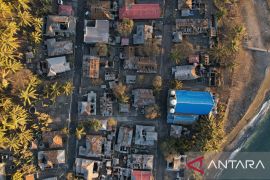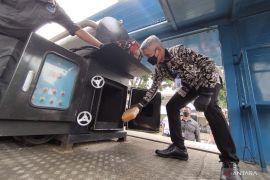Based on the result of a laboratory test by PT Angler BioChamLab in Surabaya, the fruits were proven to be carrying listeria monocytogenes bacteria, which is dangerous.Jakarta (ANTARA News) - The Indonesian Agriculture Ministrys Quarantine Agency destroyed 36.3 tons of apples imported from the United States that tested positive for the listeria monocytogenes bacteria.
The fruits were burned in an incinerator of PT Tenang Jaya Sejahtera in Karawang, West Java, on Friday, witnessed by Head of the Agricultural Quarantine Agency Banun Harpini, representatives from the Tanjung Priok Customs and Excise Service, the Trade Ministry, the police and the importer of the fruits.
Based on the result of a laboratory test by PT Angler BioChamLab in Surabaya, the fruits were proven to be carrying listeria monocytogenes bacteria, which is dangerous, Harpini said.
"The fruits were destroyed to protect people from the unsafe produce, which is the responsibility of the state," she stated.
Head of the Tanjung Priok Agricultural Quarantine Agency Purwo Widiarto revealed on January 29 that he received an application to import fresh apple from the United States through Singapore.
Following a physical examination and a sample test, it was found that the fruits contained bacteria, he affirmed.
As much as 36.3 tons of these apples were put in two containers, one carrying 19.49 tons and the other, 16.84 tons.
"As a result, the two containers of apples were rejected on February 5 and returned to the owner to re-export them," he stated.
As the owner could not re-export them for a cost, the quarantine agency later decided to destroy the granny smith, galla and red apples, he affirmed.
Harpini further noted that the fruits cost between Rp35,000 and Rp40,000 per kilogram, which brings their total worth to Rp10 billion.
With regard to the listeria monocytogenes contamination of apples from the United States, she said that the frequency of the contamination had lessened, with 41,000 tons or 3,000 tons being affected on a monthly average in 2014 and only 1,500 or 500 tons a month affected from January to early March this year, she pointed out.(*)
Editor: Heru Purwanto
Copyright © ANTARA 2015











